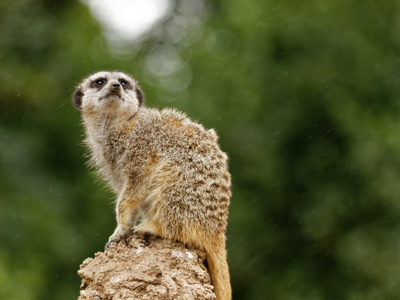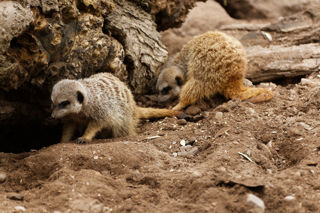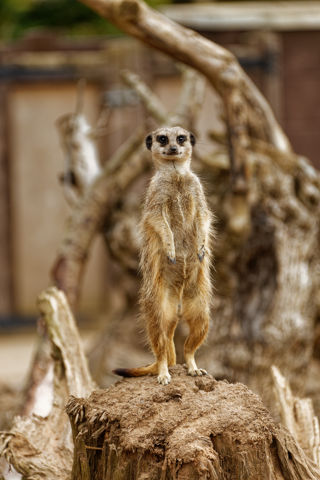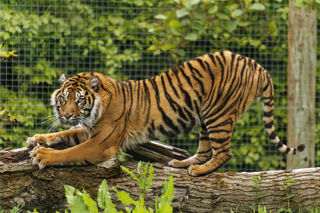
Meerkat
Meerkats are members of the mongoose family which are famous for being able to catch venomous snakes as they are immune to most small reptile and invertebrate venom. They have a slender body, a tapered tail and long thin legs. They have distinct pointed faces with black-rimmed eyes and effective camouflage.

Meerkats are sociable animals that live in packs, or mobs, of up to 30 related individuals. When the pack is foraging for food, a sentry perches at a high vantage point, mainly watching the skies for predators. If anything is spotted, then a sharp bark is used to alert the others to the danger.

A dominant or ‘alpha’ pair becomes established through confident and bold behaviour in social interactions. Only they are permitted to breed and if any other female becomes pregnant they will be forced to leave the pack or her infants will be killed. All members of the pack help raise the dominant pair’s pups who will be their siblings or their nieces and nephews. The pups will venture out of the burrow at three weeks old.
Meerkats will eat anything they can catch from spiders, snakes, scorpions and small mammals as well as eggs with only a little bit of vegetation for variety.
Meerkats are not currently threatened by human actions.
Key Facts:
Conservation Status: Least Concern
Distribution: South Africa
Habitat: Desert, Grassland, Savannah
Diet: Leaves, Omnivourous, Small Invertebrates, Small Mammals
Height: 24 – 29cm
Weight: 620 – 969g
Gestation: 11 weeks
No. of young: 2 -5
Life Span: 12 – 15 years

SUPPORT OUR ANIMALS
If you're looking for an alternative way to donate to Twycross Zoo, you can help support our animals and our zoo keepers by purchasing something from our Amazon Wishlist!
Updated regularly by our zoo keepers, the items on the list help to provide enrichment for our animals and keep their habitats well maintained.
Every donation helps us as a conservation charity.
